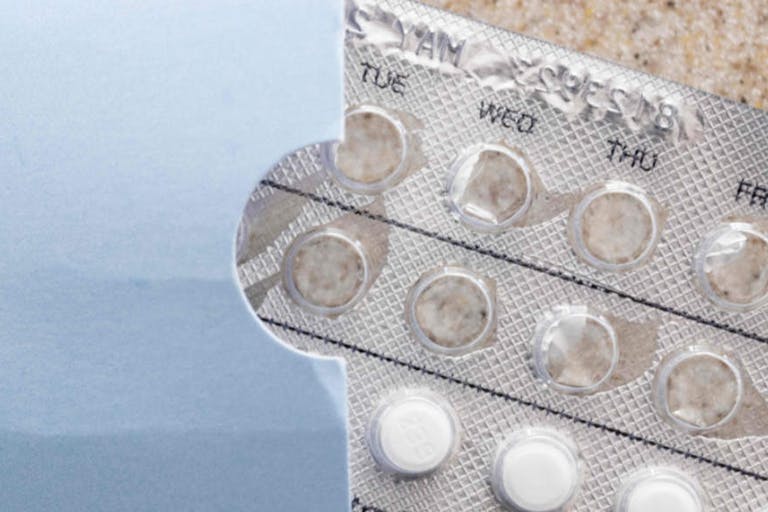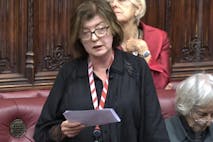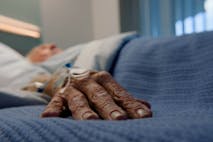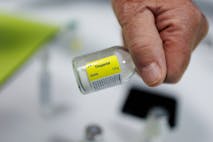
EU Parliament votes in favor of abortion travel fund
Bridget Sielicki
·
New Jersey plans over-the-counter hormonal contraception for 2024
New Jersey Governor Phil Murphy announced Wednesday that hormonal contraception will be available in the state without a doctor’s prescription starting in 2024.
The news comes after both the State Medical Board of Examiners and the State Board of Pharmacy approved rules for the over-the-counter distribution of hormonal birth control. The guidelines were established as part of the Freedom of Reproductive Choice Act, which Murphy signed into law in January.
The governor made his announcement at a press conference in which he touted the change as a victory for reproductive rights.
“New Jersey is and New Jersey always will be a safe haven for reproductive health care, period. We’re going to ensure that our daughters do not inherit a world in which they have fewer rights than their parents did,” Murphy said. “We’re going to stand united and say ‘hell no’ to a right-wing movement that is hellbent on ripping away our fundamental freedoms.”
Article continues below
Dear Reader,
In 2026, Live Action is heading straight where the battle is fiercest: college campuses.
We have a bold initiative to establish 100 Live Action campus chapters within the next year, and your partnership will make it a success!
Your support today will help train and equip young leaders, bring Live Action’s educational content into academic environments, host on-campus events and debates, and empower students to challenge the pro-abortion status quo with truth and compassion.
Invest in pro-life grassroots outreach and cultural formation with your DOUBLED year-end gift!
Jackie Cornell, executive director for the Planned Parenthood Action Fund, praised the announcement. ”Reproductive freedom is under attack. And that is not hyperbole,” Cornell said. “New Jersey continues to be a beacon of hope for all.”

Though activists praise the news, there is plenty of evidence that hormonal birth control is not beneficial for women. It comes with a number of risks, including blood clots, depression, suicide, heart attack, stroke, infertility, and more.
One study out of Denmark found that women taking the combined oral contraceptive birth control were 23% more likely to be diagnosed with depression, while those using progestin-only pills were 34% more likely to be diagnosed with depression. The risks are even higher for teenage girls; those on combined oral contraception were at an 80% increased risk of being diagnosed with depression. Another study from the University of Copenhagen found that women using hormonal birth control had triple the risk of suicide over women who were not using it.
When birth control is available directly over the counter, there is no physician oversight to monitor the patient’s health or assess her for risk factors. Requiring a prescription for hormonal birth control isn’t an attempt to limit women’s freedom — it’s merely a safeguard to protect the health and well-being of the woman using it. Without these safeguards, the health of New Jersey’s women may now be in greater jeopardy.
Live Action News is pro-life news and commentary from a pro-life perspective.
Contact editor@liveaction.org for questions, corrections, or if you are seeking permission to reprint any Live Action News content.
Guest Articles: To submit a guest article to Live Action News, email editor@liveaction.org with an attached Word document of 800-1000 words. Please also attach any photos relevant to your submission if applicable. If your submission is accepted for publication, you will be notified within three weeks. Guest articles are not compensated (see our Open License Agreement). Thank you for your interest in Live Action News!

Bridget Sielicki
·
Politics
Cassy Cooke
·
Guest Column
Right to Life UK
·
Issues
Angeline Tan
·
Issues
Bridget Sielicki
·
Issues
Nancy Flanders
·
International
Bridget Sielicki
·
International
Bridget Sielicki
·
International
Bridget Sielicki
·
Human Rights
Bridget Sielicki
·
International
Bridget Sielicki
·